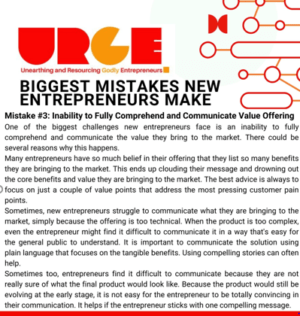By J. N. Halm
The importance of employees to a business’s success, or otherwise, cannot be overemphasised. Employees are more than just tools to be deployed to achieve the stated aims of a business. With minds of their own and coming into the workplace with their unique talents, skills, and knowledge, employees can offer a business so much more.
Unsurprisingly, it is businesses that know how to make the best use of their employees who are better able to handle whatever fierce competition the market presents. Unfortunately, this is not the case for many businesses. There are many situations where employees prefer to stay mum, rather than attempt to help the organisations employing them.
Employee Silence is a term coined to describe a situation where employees deliberately or unintentionally withhold pertinent information from their employers. This describes what happens when employees refuse to share their ideas, opinions, and concerns. The willingness of employees to speak up and offer suggestions, information, or opinions, especially in an informal way has been referred to as Employee Voice. In other words, Employee Silence is the loss of Employee Voice.
Closely related to Employee Silence is Knowledge Hiding. This is the situation where a worker makes a decision not to deliver knowledge when approached by a co-worker with a knowledge request. The one with the knowledge can play dumb, behaving as if she has no idea of what the request is about.
Experts have grouped Employee Silence into four categories. There is Acquiescent Silence, where an employee withholds ideas, opinions and suggestions because he or she believes that voicing out would make no difference. These are employees who are resigned in their hopes of making any significant impact on the fortunes of the workplace.
The other type of silence is Quiescent Silence. This is what occurs when employees actively withhold relevant information as a way of protecting themselves, simply because they believe speaking out would come with consequences that would be personally unpleasant.
The third type of employee silence is Prosocial Silence. This is the withholding of work-related ideas, information, or opinions, believing that withholding the information would be of some benefit to the organisation.
The fourth kind of employee silence is Opportunistic Silence. This is when an employee strategically withholds work-related ideas, information, or opinions to achieve an advantage for the one while accepting harm to others.
In addition to the four groups, some experts have also added another kind of employee silence. This is what they refer to as Deviant Silence. It has been described as what employees with evil intentions do. They have important information that would be of benefit to the organisation but prefer to remain silent just so that their superiors would end up making mistakes. It is important to note that one employee might have more than one reason why he or she decides to remain mum on the job.
There is even another behaviour noticed by researchers when it comes to employee silence. This is referred to as Knowledge Hoarding. It refers to the “deliberate concealment of knowledge that is relevant to another but not requested”. In other words, so long as these employees have not been asked for that information, they would keep it to themselves.
However, regardless of the reason for the silence and therefore the eventual categorisation, one thing is certain. Employee silence and consequently, knowledge hiding are not good for both the employee and the organisation.
The negative effects of Employee Silence include the destruction of workplace culture and employee morale. Employee silence is a sign of an employee’s feeling of being undervalued. People want to believe that their views matter and when the organisation refuses to value those views, employees see that as an undervaluation of themselves.
Additionally, employees feel a lack of control when they are unable to express their genuine concerns about what is happening in the workplace. When employees feel like there would be negative consequences for airing their views, they will normally keep quiet. However, what this means is that they would be coming to work every day but their heart would not be in what they are doing. Organisational change and development are greatly hampered when employees prefer to hold what they know to themselves, whether intentionally or unintentionally.
Studies have unveiled several factors that lead to employee silence. These factors can be categorised as Individual factors, such as the personality and self-esteem of the employee. There are also leadership factors which include the leadership style of management. Then there are organisational factors such as the organisational structure, atmosphere within the organisation and the politics of the workplace.
Another set of factors that have been known to contribute to employee silence and subsequently, knowledge-hiding behaviour are the actions (or inactions) of other employees. The behaviours and attitudes of colleagues go a long way to determining what an employee will do. For instance, if new employees find themselves among colleagues who do not treasure knowledge sharing, it is only natural that these new employees will simply follow suit.
If the group resorts to bullying and other forms of mistreatment, then employees will prefer to remain silent. In an attempt to be accepted by the group, employees will conform to the group norms.
Key among the actions and inactions of colleagues is the issue of workplace suspicion. It has been found that when employees are suspicious of their colleagues, they prefer to remain silent as a way of conserving their cognitive resources.
The results of a study published in the March 2023 edition of the Frontiers in Psychology journal presented evidence that workplace suspicion was also to blame for the silence of some employees at work and for subsequent knowledge-hiding behaviour. The rather long title of the report was “Workplace Suspicion, Knowledge Hiding, and Silence Behavior: A Double-Moderated Mediation Model of Knowledge-Based Psychological Ownership and Face Consciousness”.
From the above discussion, it is apparent that Employee Silence has an effect on the quality of service and experience customers have. For instance, by holding back on what they believe would enhance the service and experience quality of the organisation, employees deprive the organisation of good ideas.
Secondly, if the said “silent” employees happen to be directly involved in serving customers, then their reservations about sharing their views would become evident in their actions and inactions in dealing with customers. It is hard to be excited in front of customers when you are not too pleased about what is going on in the organisation.
There is proof that when silent employees hold on to the knowledge they know they should be sharing, they feel much stressed and burnout eventually follows. Stressed frontline employees do not make for great customer-handling employees. Some might even develop deviant behaviours against the organisation they work for.
Some studies show that employee silence is more prevalent than we might believe. There was a particular study that claimed that as high as 50% of employees interviewed felt uncomfortable speaking up and were extremely sensitive to the problems of the enterprise or work.

The issue of employee silence and knowledge hiding therefore is not something that can be treated lightly. Businesses must put in the right structures to ensure that, at any point in time, employees have the right platforms to speak their minds, share their views and voice their opinions. It is far better for individuals to bring out what is eating them inside rather than to keep their views to themselves. When mum’s the word, all suffer, including the customer.










